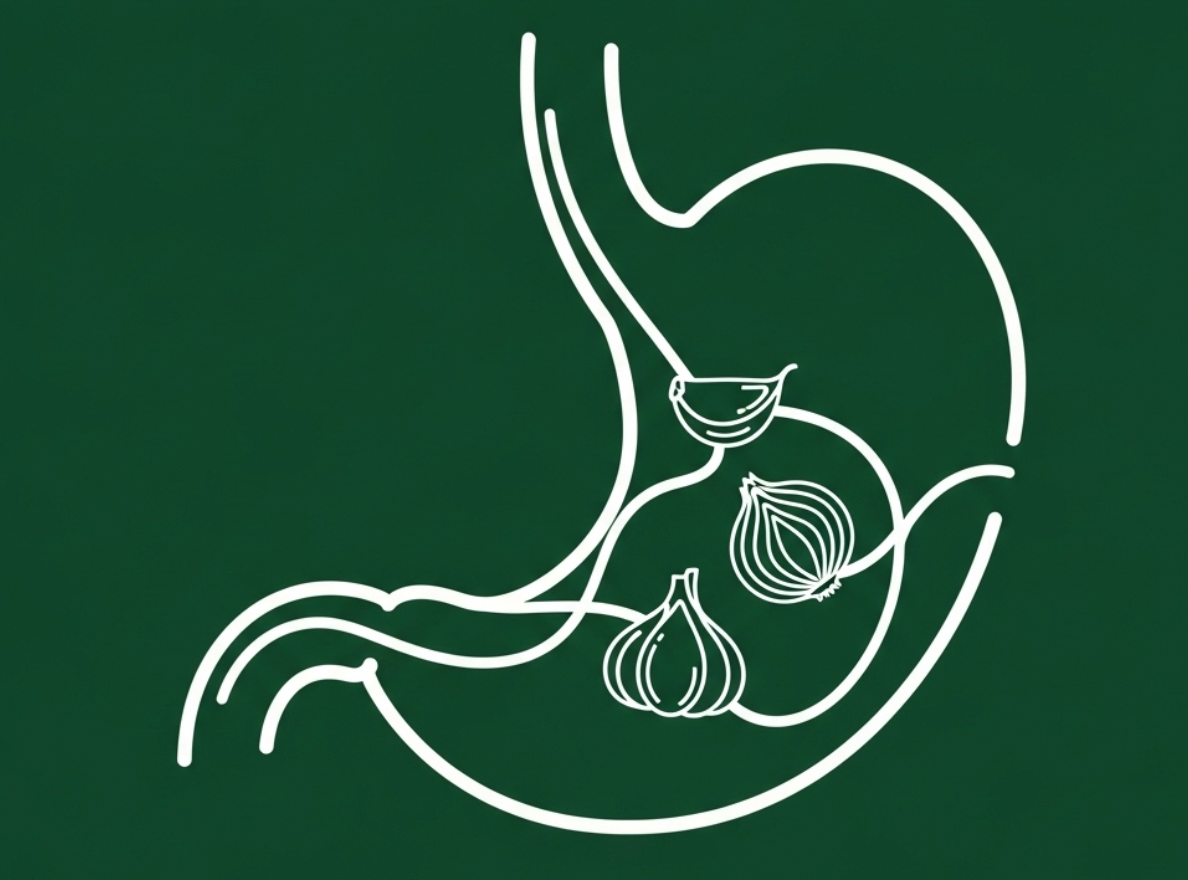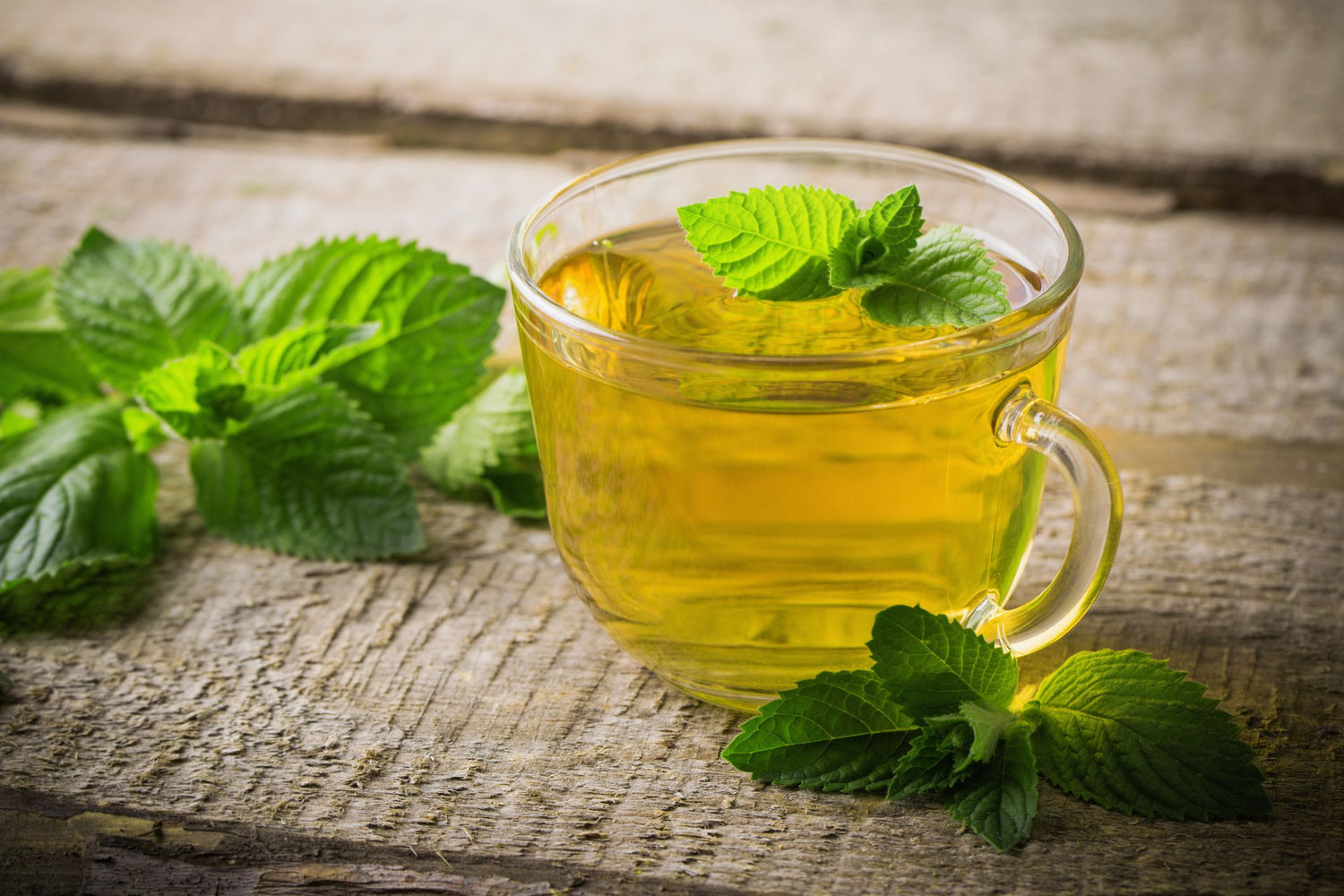Love garlic and onions but tired of the burning sensation they leave behind? You're not alone in this frustrating cycle. These flavor powerhouses are among the most common heartburn triggers, yet they're essential ingredients in countless recipes. The good news? You don't have to eliminate garlic and onions from your diet completely.
This comprehensive guide reveals 5 scientifically-backed cooking strategies that neutralize the heartburn-causing compounds in garlic and onions, plus our 2-minute quiz to identify your unique digestive triggers and create a personalized plan that works for your body, not someone else's.

Table of contents
Why Garlic and Onions Trigger Heartburn
Spicy foods, onions and garlic are common GERD triggers. Understanding the science behind why garlic and onions cause heartburn helps you cook them more effectively.
Garlic and onions trigger heartburn through three main mechanisms:
Sulfur compounds like allicin in garlic and thiosulfates in onions directly irritate the esophageal lining
Lower esophageal sphincter (LES) relaxation allows stomach acid to escape upward more easily
Increased gastric acid production creates more acid available to reflux into the esophagus
Research shows that sulfur-containing vegetables can reduce LES pressure by up to 40%, significantly increasing acid reflux episodes in sensitive individuals.
The intensity of heartburn from garlic and onions varies dramatically based on preparation method, cooking time, and individual tolerance levels. Raw preparations cause the most severe symptoms, while properly cooked versions can often be tolerated even by reflux-prone individuals.
5 Proven Cooking Strategies to Prevent Garlic and Onion Heartburn

1. Master the Low-Heat, Long-Cook Method
High heat is your enemy when it comes to garlic and onions. Those searing temperatures actually activate the most irritating sulfur compounds, turning these flavor enhancers into heartburn triggers.
The game-changing technique: cook at 250-300°F for 45-60 minutes with enough oil to prevent burning. Cover the pan to create gentle steam that breaks down harsh chemicals while preserving delicious flavor.
This extended low heat converts harsh allicin and thiosulfates into gentler, caramelized compounds that add natural sweetness without triggering reflux.

2. Remove the Germ from Garlic Cloves
That tiny green germ hiding inside garlic cloves packs the highest concentration of allicin the primary heartburn-causing compound. Removing this troublemaker dramatically reduces acid reflux potential while keeping all the flavor.
Simply slice garlic cloves lengthwise and use a knife tip to remove the thin green center before cooking. This one step can reduce garlic's heartburn potential by up to 60%.
3. Use Strategic Soaking and Pre-Treatment
Soaking raw garlic and onions in specific solutions neutralizes sulfur compounds before cooking, creating a much gentler base for your recipes.
Try these pre-treatments:
- 20 minutes in whole milk (proteins bind to sulfur compounds)
- 15 minutes in salt water (draws out harsh juices)
- 10 minutes in lemon juice (breaks down irritating enzymes)
4. Cook with Alkaline Ingredients
Adding naturally alkaline ingredients during cooking neutralizes the acidic compounds in garlic and onions that trigger heartburn. Fresh herbs like basil and oregano, root vegetables such as carrots, and dairy products like cream all work as alkaline companions.
The magic happens during cooking as these ingredients neutralize harsh compounds in real-time, transforming potential irritants into gut-friendly flavor enhancers.

5. Choose Heartburn-Friendly Garlic and Onion Alternatives
Some garlic and onion varieties naturally contain fewer irritating compounds. Sweet onions like Vidalia cause less heartburn than harsh yellow varieties, while roasted garlic powder is gentler than fresh cloves.
Other smart swaps include garlic-infused oils (sulfur compounds pre-processed) and chives or scallions as milder onion substitutes. These alternatives deliver authentic flavors with significantly reduced heartburn risk.
Garlic and onions don't have to trigger heartburn if you understand how to cook them properly. The sulfur compounds that cause acid reflux can be neutralized through strategic cooking methods including low-heat preparation, pre-soaking, and combining with alkaline ingredients. By removing garlic germs, choosing gentler varieties, and using proper cooking techniques, you can enjoy these essential flavors without digestive discomfort.
This article and its contents have been medically reviewed by Aditya Jain (MD at Harvard Medical School and Op-Ed Fellow at Doximity).
Can I eat raw garlic and onions if I have acid reflux?
Raw garlic and onions contain the highest levels of heartburn-triggering compounds. If you have regular acid reflux, it's best to avoid raw preparations and stick to properly cooked versions using the methods outlined above.
How long should I cook garlic and onions to prevent heartburn?
Cook garlic and onions at low heat (250-300°F) for at least 45 minutes to break down the sulfur compounds that cause acid reflux. The longer, gentler cooking process transforms harsh chemicals into milder, caramelized compounds.
Which type of onions cause the least heartburn?
Sweet onion varieties like Vidalia and Walla Walla contain fewer sulfur compounds than yellow or white onions, making them gentler on sensitive stomachs. Red onions fall somewhere in between.
Does garlic powder cause heartburn like fresh garlic?
Roasted garlic powder typically causes less heartburn than fresh garlic because the roasting process breaks down many of the irritating sulfur compounds. However, raw garlic powder can still trigger symptoms in sensitive individuals.










